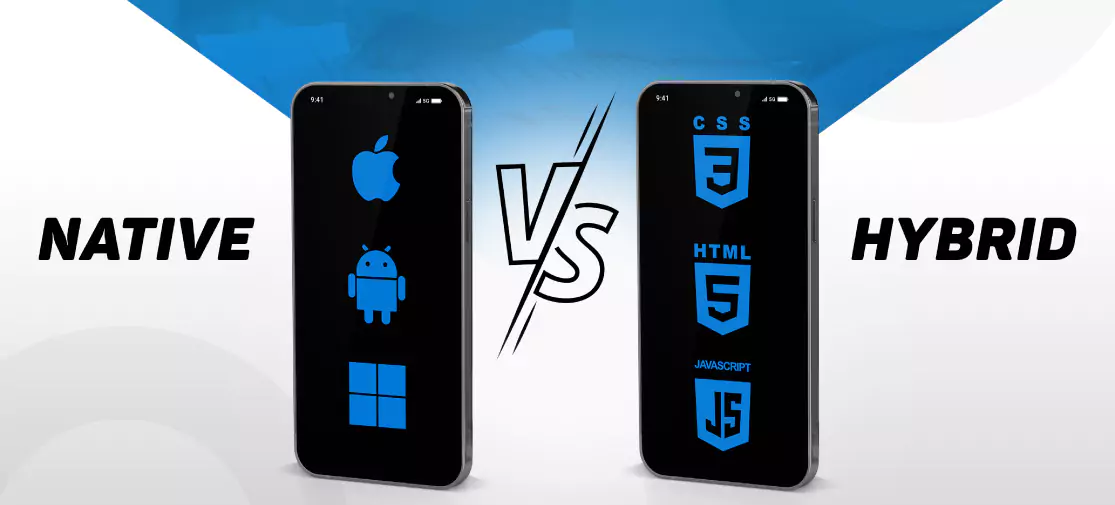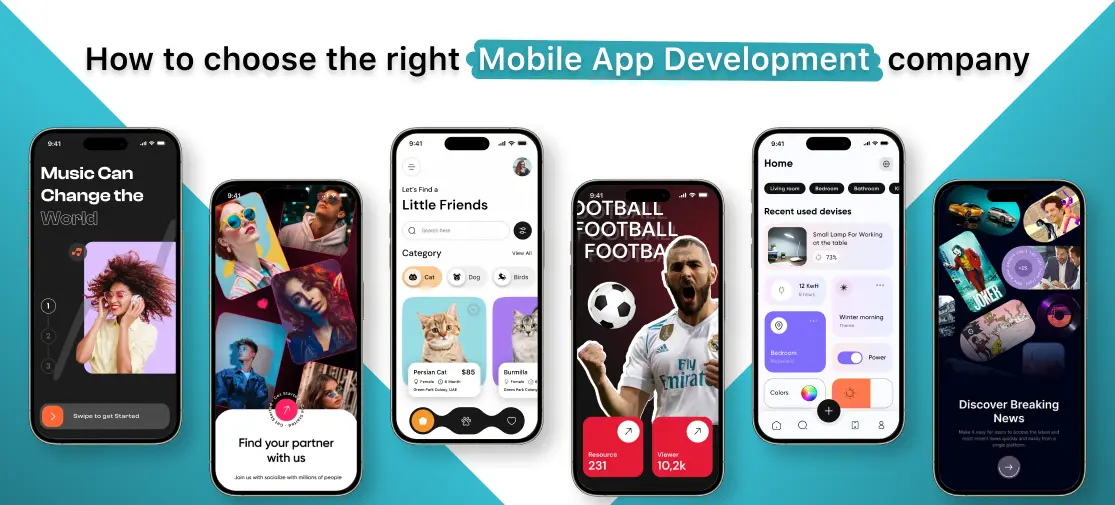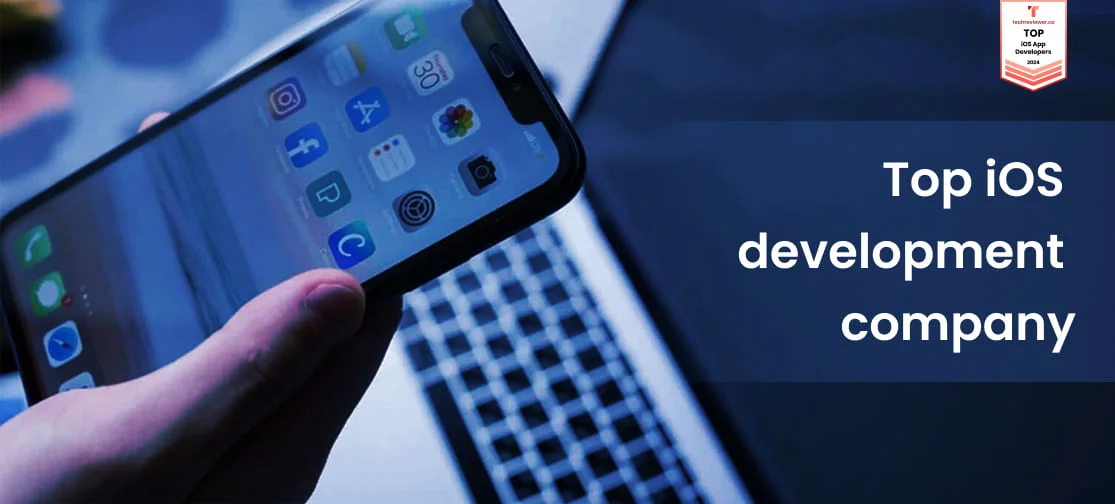Glimpse
After a long, the debate over "original vs. Hybrid application" is still ongoing, and still interesting. In fact,native and hybrid Mobile application development approaches, like other technologies, have their own strengths and limitations.
Annual app downloads worldwide are projected to reach 299 billion by 2023. These statistics show that businesses have both abundant opportunities and competition. Of course, head-scratching can't be helped when apps like Facebook and Whatsapp are native, while apps like Instagram and Evernote, which are a treasure trove of people, are hybrid. But, ultimately, the choice comes down to a number of crucial factors, such as your budget, time constraints, the complexity of facilities, security requirements, and so on.
Read on to learn the differences between hybrid and native apps and make informed decisions for your next app development project.
Techvoot is a leading tech company providing state-of-the-art mobile app development services using state-of-the-art technology. With years of experience creating innovative, high-quality applications, we help companies increase their business value. Let's connect to bring your new and innovative business ideas to life!
Overview of native app development
Native applications are built using specific programming languages that support one specific operating system at a time. For example, Objective C or Swift is used for iOS, while Java or Kotlin is used for Android.Both Apple and Google provide application developers with their own interface elements, SDKs, and development tools.
Native applications can access a variety of devices, such as the phone's camera and address book. User interface elements, logic, style, and data are all stored on the device for most native applications, making them more suitable for offline work.
A general perception until a few years back was almost one-sided in favor of native app development. Native apps are for many businesses but not for everyone out there. With the drastic change in time and technology, hybrid apps compete toe-to-toe with native applications. But, first, let’s see some popular examples of native apps which is as under.
Examples of popular native apps
Video games are primarily written for top-of-the-line consoles, so most of them are native mobile applications.
- Pokemon go: This game effectively accesses the functionality of the device - a camera for augmented reality, GPS for mapping locations, and an accelerometer for measuring acceleration.
- Spotify: The world's largest music streaming service provider, is also one of the most popular native app examples.
Overview of Hybrid app development
Hybrid apps have been developed using a single code base to run across multiple channels and platforms. These apps are written in JavaScript or HTML5 and are built using cross-platform frameworks such as React, Sencha, Xamarin, Ionic, etc.
A hybrid application is deployed in the original container and uses a mobile web view object. These apps are partly native, part web apps and therefore, users can download them from app stores and also access them through a web browser. This approach is widely applied to the travel industry and businesses that focus on products, photo-sharing, reviews, and customer ratings.
Nowadays, hybrid apps are often predicted to outperform native apps. However, some functionality is not available for hybrid applications when the user does not have a stable internet connection.
Examples of popular hybrid apps
- Gmail: Gmail was written from the perspective of a hybrid application, with a perfect blend ofbasic elements and HTML.
- Amazon app store: This store is powered by HTML5, has a high-level user interface and is very popular with thousands of users.
Although native apps are known for their "fast" performance, hybrid apps like Uber, and Instagram can rarely be called slow or lag behind in performance. So we can say that there is a one-minute difference in the performance of these apps at a higher level.
Native Vs hybrid: the best to choose !
Without knowing how one app development technique differs from another, it is challenging to go ahead and determine the most appropriate approach for your mobile application project. Here we compare ‘Original vs. Hybrid’ based on crucial factors to understand the characteristics, key strengths, challenges, and potential pitfalls.
Performance
- Since native applications are programmed for a specific operating system, they can make better use of memory and storage and have high-performance metrics.
- Google and Apple frequently release new features for Android and iOS, respectively. Native applications are built with the SDK (Software development kit)., which is faster than the cross-platform framework. As a result, developers can quickly access these latest features and integrate them into the app.
- However, for an application developed in a hybrid framework, adding new features takes time. And so, if your app development involves complex features and functionality, then hybrid app development may not be the right choice for you.
- Since most hybrid applications are primarily websites wrapped in native applications, you need to have an internet connection to use all the features
- However, experienced developers can create offline-friendly hybrid apps with React Native Framework.




